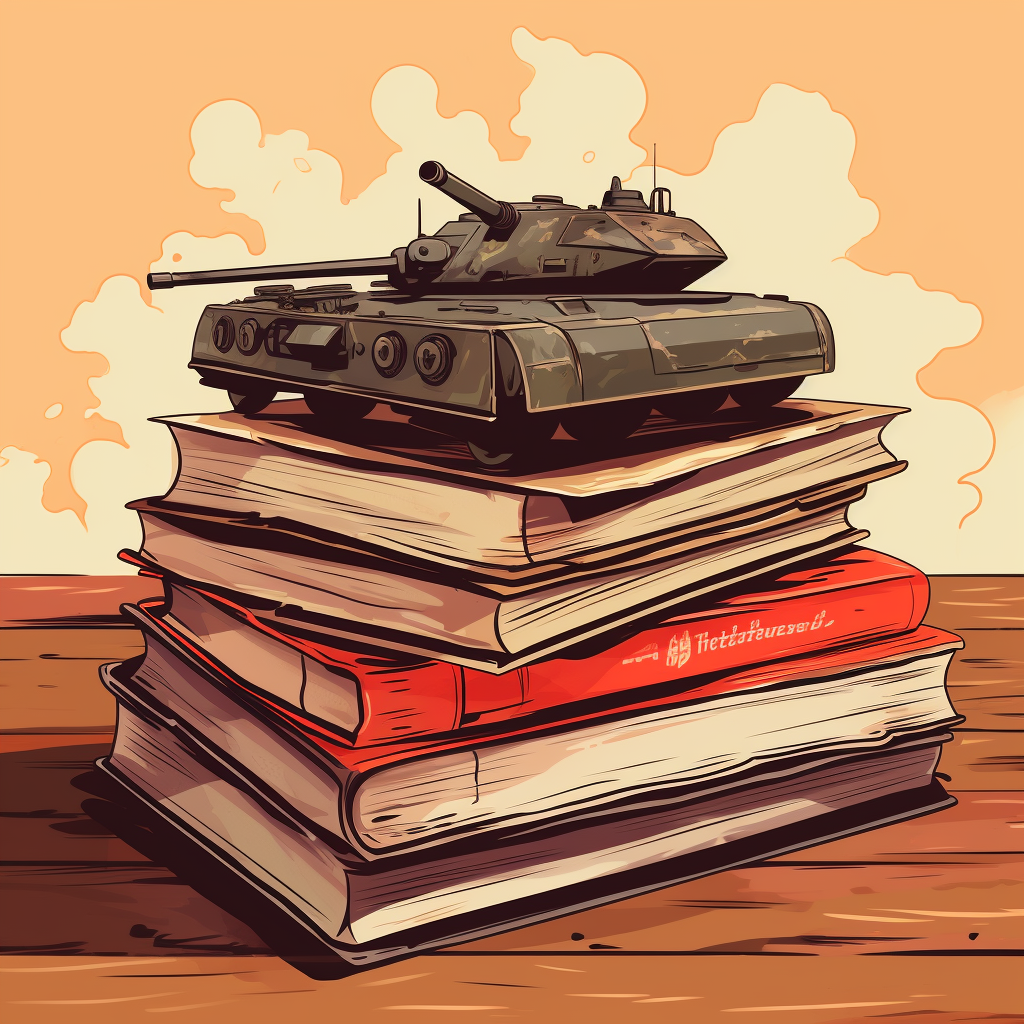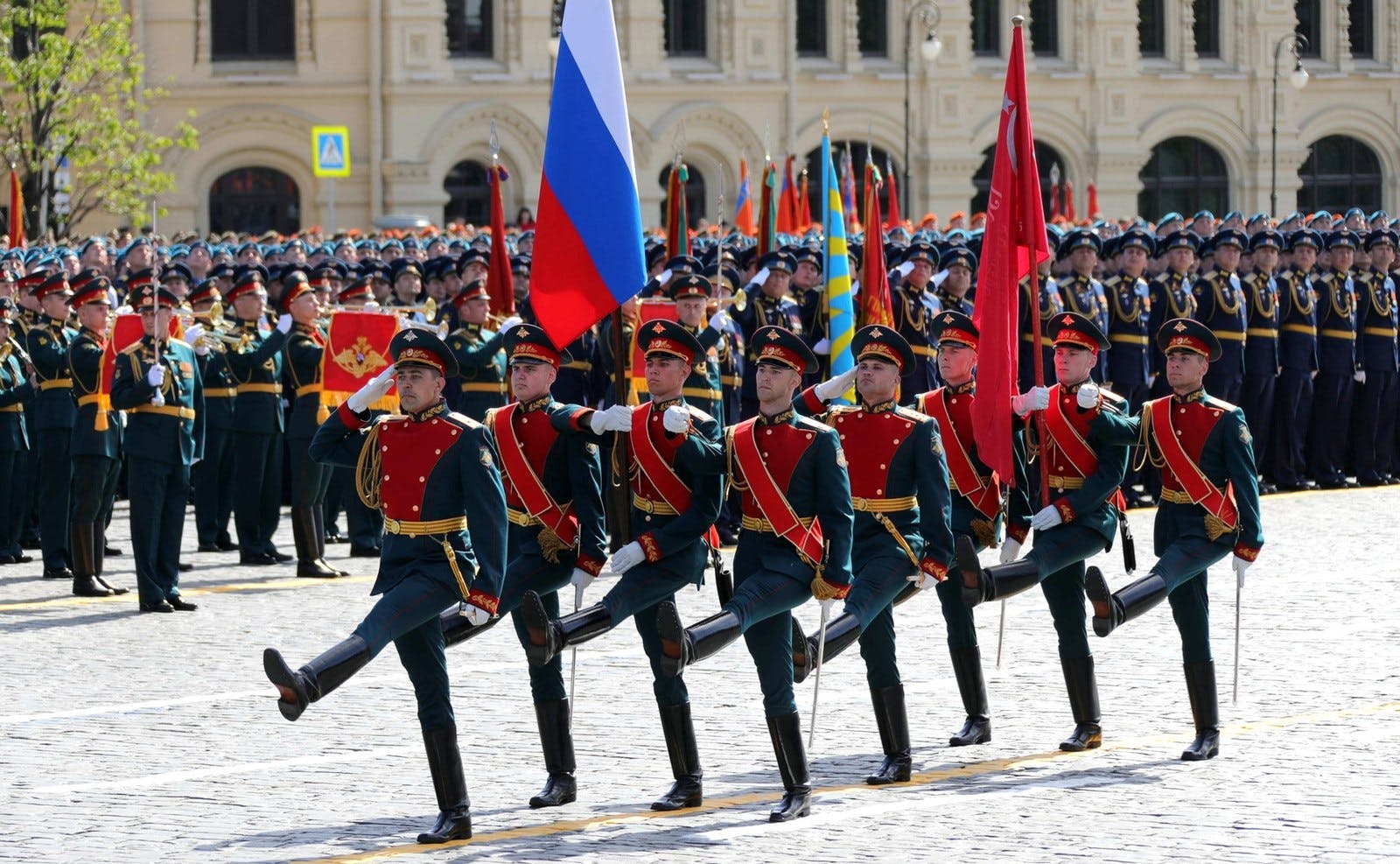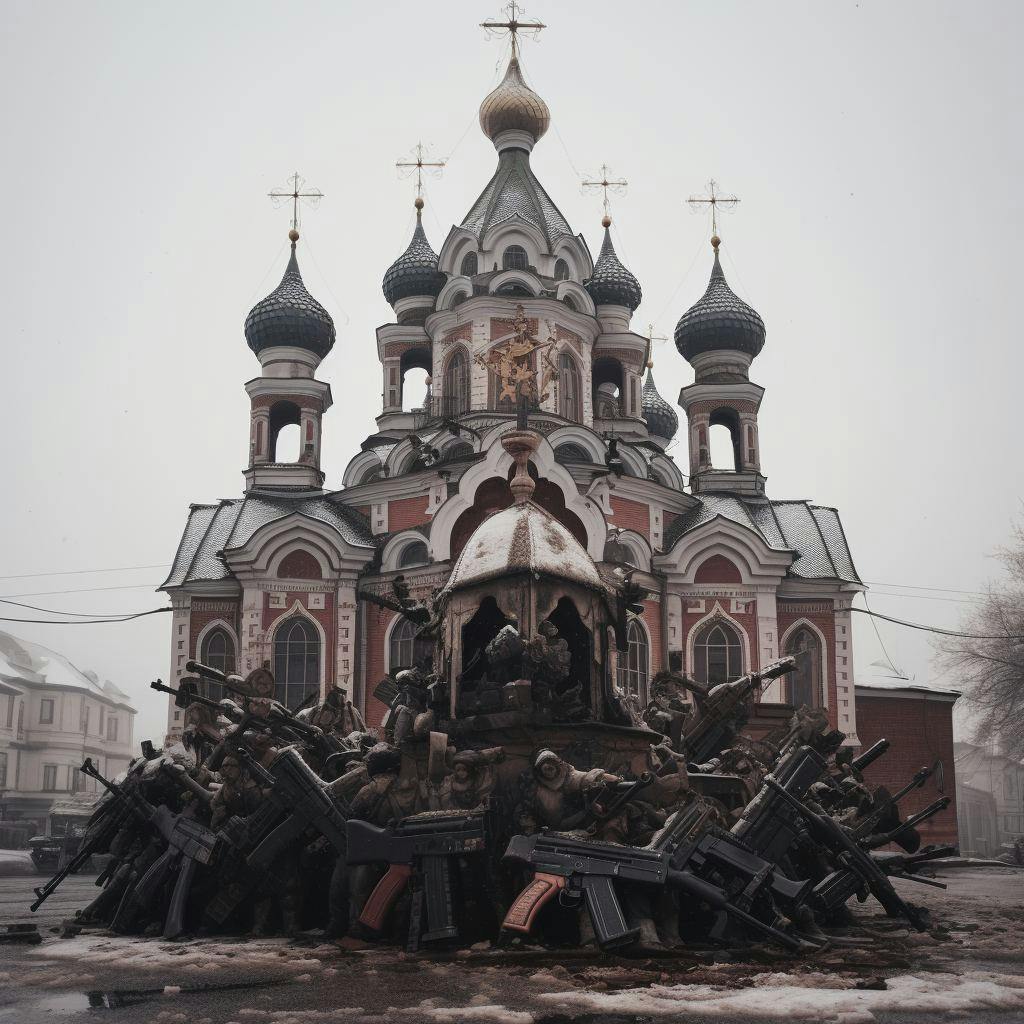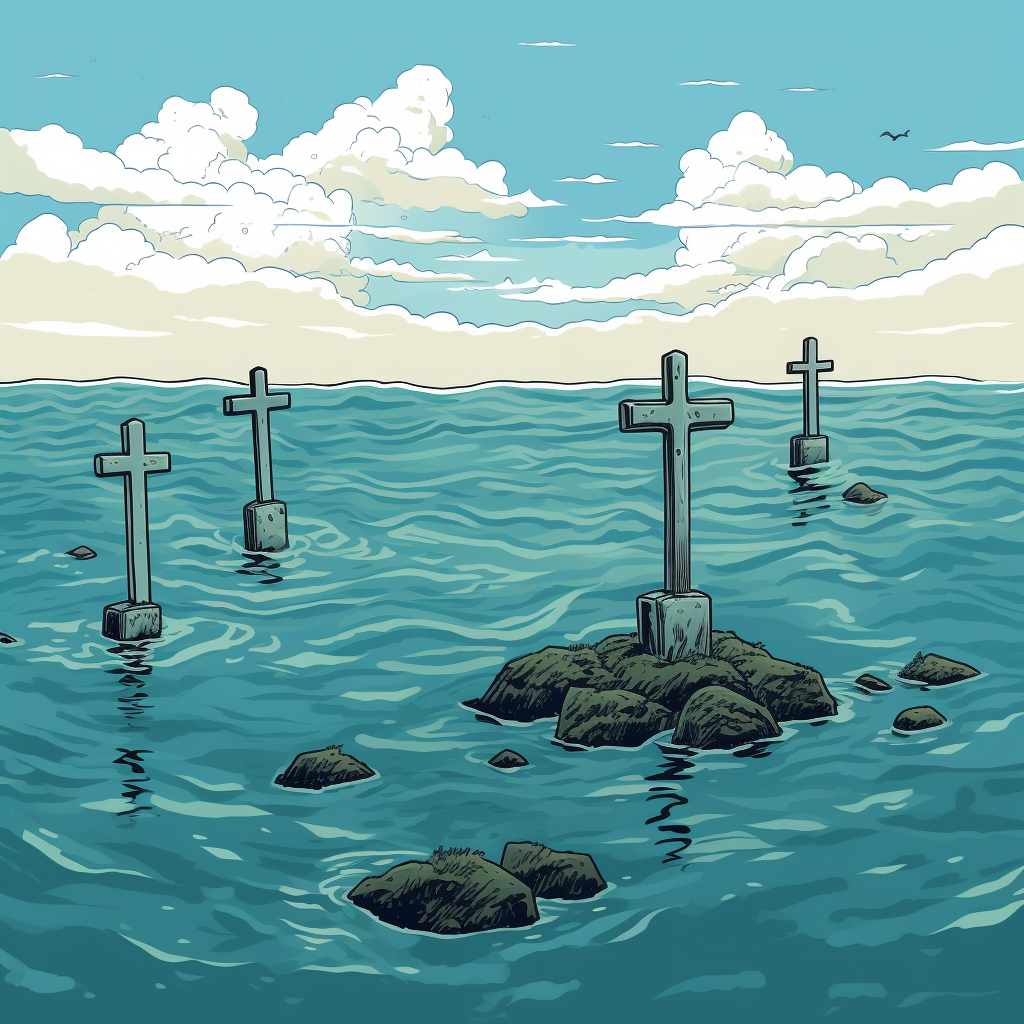How All of Russian TV Became State-Controlled
Short biography of the freedom that never happened.



The Russian government focuses special attention on how history is portrayed through official channels, curating the narrative to match their version of events. While history may be in the making at present in the war in Ukraine, Russian state media are more than ready to draw a straight line connecting the past and the present as a means of justifying the war.
Who controls the past controls the future. Who controls the present controls the past.
George Orwell
This strategy has been employed long before the full-scale invasion began; however, a specific interpretation of history occupied a central part of Vladimir Putin’s announcement on February 24th, 2022 of the “de-Nazification” of Ukraine as part of the goals of his war. While the word “de-Nazification” sounds awkward in Russian, the idea that Ukraine needed to be rid of Nazis was not a new one within Russian state media. Since the events of 2013 and 2014 in Ukraine, the Russian government had been keen to focus attention on what it considers the glorification of so-called Nazi collaborators, such as Stepan Bandera and the Ukrainian Insurgent Army, which were also used in Vladimir Putin’s declaration.
Despite the complicated history of this part of Europe and the even more complicated relationship between locals and occupying German forces, Russian state propaganda prefers a simplistic approach that displays anyone who collaborated with the Nazis as fascists who opposed the Soviet Union. This simplification extends beyond Ukraine to engulf the pivotal historical event in the eyes of the Russian government - World War II or the “Great Patriotic War” as it is called in Russia.
Today, Victory Day is celebrated as one of the most important holidays in Russia in terms of the resources expended. While in Europe and the United States, the end of the war in Europe is celebrated on May 8th, Russia celebrates it on May 9th. This is because when Nazi Germany signed its capitulation with the Allies, it was May 8th in Berlin and already May 9th in Moscow. It was not always a day of pompous celebration, however. In fact, parades on Red Square were only organized to commemorate jubilee years during the Soviet Union, as two other holidays occupied more important roles in Soviet history - the anniversary of the October Revolution on November 7th and International Workers’ Day on May 1st. It was not until the 2000s that Victory Day rose to the status it currently enjoys, with military parades and other festivities being held throughout the country.

Along with the holiday, the politics of remembering World War II and Victory Day itself have served as ammunition in the Russian government’s efforts to use the event as a means of stressing Russia’s role in the world and the unique path it has taken. As evidence, Russian state media often runs stories on how European countries restrict celebrations of Victory Day, remove memorials to Soviet troops, or have too few, in the eyes of Russian media, commemorations. With the ongoing war in Ukraine, Russian state media has focused special attention on the holiday to demonstrate to its viewers that Europe has forgotten the Soviet Union’s role in the war and now supports fascism.
Media such as this positions the Russian government and people as the keepers of the truth about the war and the Soviet people’s role in defeating Nazi Germany. Part of this role is to declassify select archival documents. One news report emphasized that publicating such documents is “aimed at opposing falsifications and to maintain the memory of the Great Patriotic War, the heroic heritage of our people, and their decisive role in the Victory over Nazism.”
With the official narrative emphasizing the Soviet (and now, Russian) people as the victors, Russian state media draws a direct connection between the Red Army soldiers who marched across Europe in 1943-1945 and the Russian Army that invaded Ukraine in 2022 and the soldiers fighting this war today. Focusing attention on the “de-Nazification” of Ukraine, news reports leading up to May 9th showed soldiers in Ukraine talking about living up to their grandfathers and great-grandfathers as they also “liberate Ukraine from fascism.” Another interview featured a soldier stated to have three degrees and who was a history teacher before the war. While moving along the frontlines, the soldier tells about his grandfather who fought in the same region of Ukraine as he is today. Referring to the US’s role in providing supplies to the Soviet Union, this soldier states “That was when America helped to fight Nazis and not with them like now.”
The benefits of this narrative are in its simplicity, which Russian state media uses to justify the war. With its monopoly on information within Russia, state media is able to construct its version of history without expecting its traditional viewers to conduct their own research and fact check the information. Such a narrative is difficult to counter, as anyone who does can be easily labeled as a Nazi sympathiser.
Dieser Artikel wurde noch nicht ins Deutsche übersetzt. Wir suchen nach Freiwilligen, die uns dabei helfen können.
Short biography of the freedom that never happened.

What is the "Russian World" and what does it have to do with the war in Ukraine

The Kursk submarine exploded on 12 August 2000, killing all 118 personnel on board. How did the Russian government, Vladimir Putin and the military react to the tragedy? Does the incident give us any perspective on the current problems of the Russian army?

Unsere Medienplattform würde ohne unser internationales Freiwilligenteam nicht existieren. Möchten Sie eine_r davon werden? Hier ist die Liste der derzeit offenen Stellen:
Gibt es eine andere Art wie Sie uns unterstützen möchten? Lassen Sie es uns wissen:
Wir berichten über die aktuellen Probleme Russlands und seiner Menschen, die sich gegen den Krieg und für die Demokratie einsetzen. Wir bemühen uns, unsere Inhalte für das europäische Publikum so zugänglich wie möglich zu machen.
Möchten Sie an den Inhalten von Russen gegen den Krieg mitwirken?
Wir wollen die Menschen aus Russland, die für Frieden und Demokratie stehen, gehört werden lassen. Wir veröffentlichen ihre Geschichten und interviewen sie im Projekt Fragen Sie einen Russen.
Sind Sie eine Person aus Russland oder kennen Sie jemanden, der seine Geschichte erzählen möchte? Bitte kontaktieren Sie uns. Ihre Erfahrungen werden den Menschen helfen zu verstehen, wie Russland funktioniert.
Wir können Ihre Erfahrungen anonym veröffentlichen.
Unser Projekt wird von internationalen Freiwilligen betrieben - kein einziges Mitglied des Teams wird in jeglicher Weise bezahlt. Das Projekt hat jedoch laufende Kosten: Hosting, Domains, Abonnements für kostenpflichtige Online-Dienste (wie Midjourney oder Fillout.com) und Werbung.




Russland hat den Krieg gegen die Ukraine angefangen. Dieser Krieg dauert schon seit 2014 an. Er hat sich seit 24. Februar 2022 nur noch verschärft. Millionen von Ukrainern leiden. Die Schuldigen müssen für ihre Verbrechen zur Rechenschaft gezogen werden.
Das russische Regime versucht, die liberalen Stimmen zum Schweigen zu bringen. Es gibt russische Menschen, die gegen den Krieg sind - und das russische Regime versucht alles, um sie zum Schweigen zu bringen. Wir wollen das verhindern und ihren Stimmen Gehör verschaffen.
**Die russischen liberalen Initiativen sind für die europäische Öffentlichkeit bisweilen schwer zu verstehen. Der rechtliche, soziale und historische Kontext in Russland ist nicht immer klar. Wir wollen Informationen austauschen, Brücken bauen und das liberale Russland mit dem Westen verbinden.
Wir glauben an den Dialog, nicht an die Isolation. Die oppositionellen Kräfte in Russland werden ohne die Unterstützung der demokratischen Welt nichts verändern können. Wir glauben auch, dass der Dialog in beide Richtungen gehen sollte.
Die Wahl liegt bei Ihnen. Wir verstehen die Wut über die Verbrechen Russlands. Es liegt an Ihnen, ob Sie auf das russische Volk hören wollen, das sich dagegen wehrt.